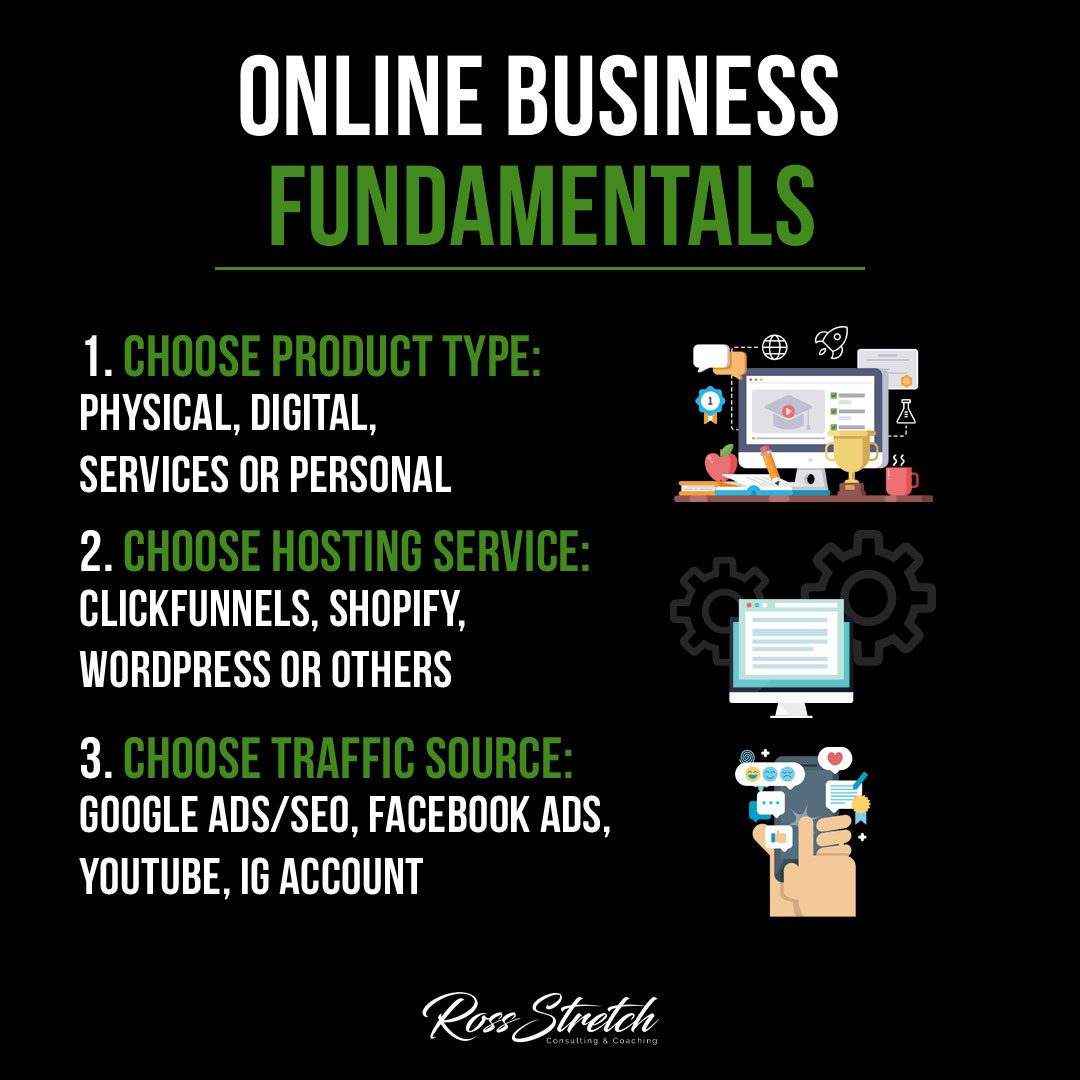Introduction
The digital economy has reshaped the way we approach entrepreneurship, with online businesses becoming the cornerstone of modern commerce. Understanding the online business fundamentals is not just recommended, it’s crucial for anyone looking to carve out a space in the digital marketplace. Here’s a deep dive into the essentials of setting up an online business.
By targeting the right audience with well-crafted messages, you can drive a steady stream of visitors to your site.
Ross Stretch
1. Deciding on Your Product Type
Your journey begins with the most critical decision: what to sell. The digital era has expanded our options beyond physical goods to digital products, services, and even personal brands.
- Physical Products: Tangible items that require inventory and shipping. They can range from handmade crafts to consumer electronics.
- Digital Products: Intangible goods that can be distributed electronically, such as e-books, software, or online courses.
- Services: Offering a skill or expertise, like consulting, design work, or virtual assistance.
- Personal Branding: Leveraging your persona to sell products or services directly associated with your name and reputation.
Keyword-rich insights: Online entrepreneurs need to consider their niche, market demand, and personal passion when selecting a product type. This foundation ensures a more focused and effective approach to their online venture.
2. Selecting a Hosting Service
Once you’ve chosen your product, you need a digital storefront. This is where hosting services come into play.
- ClickFunnels: An all-in-one solution designed to create sales funnels that convert visitors into customers.
- Shopify: A commerce platform that allows anyone to set up an online store and sell their products.
- WordPress: A content management system (CMS) that, with the right plugins, can be transformed into a full-fledged e-commerce site.
Choosing the right platform is pivotal for your online presence. Your hosting service should align with your technical skills, business size, and growth aspirations.
3. Sourcing Traffic for Your Online Business
You have your product, your storefront, now you need customers. Traffic sourcing is about finding the most effective ways to bring potential customers to your site.
- Google Ads/SEO: Paid advertising and search engine optimization are two sides of the same coin, both aiming to increase visibility on search engines.
- Facebook Ads: With its vast user base, Facebook offers targeted advertising options to reach specific demographics.
- YouTube & Instagram: These platforms are excellent for building brand awareness through content marketing and influencer partnerships.
Understanding and leveraging these traffic sources can significantly impact your online business’s success. By targeting the right audience with well-crafted messages, you can drive a steady stream of visitors to your site.


